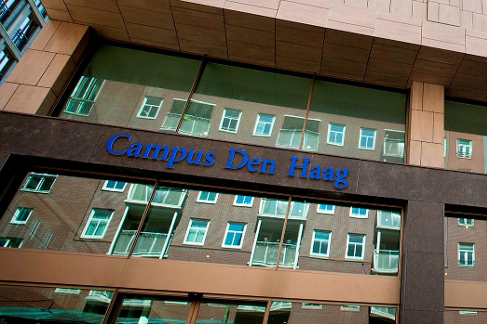Opening TU Delft Policy Modelling Lab
On 6 December 2018, we will officially launch our Policy Modelling Lab (PML) in The Hague. At the PML, TU Delft researchers apply — together with client organizations and EPA MSc students — the latest data-analysis, problem structuring, policy modelling, and exploratory simulation approaches to better understand and support decision making in the context of complex dynamic uncertain issues with respect to so-called Grand Challenges (migration, geopolitics, energy transitions, et cetera).
The PML is a vehicle for TU Delft researchers to work on applied (quantitative) policy research for ministries, planning bureaus, and institutes in The Hague, the Netherlands, and the rest of the world. The Policy Modelling Lab is a lab with a very strong “Delft” profile (computational systemic), which is unique in The Hague. It showcases the usefulness of computational and systems approaches applied and developed at TU Delft, and taught at the EPA MSc programme in The Hague.
The pool of EPA MSc students, mostly hired as research assistants, is a unique resource for the PML and its clients/partners. In the EPA MSc programme, they learn about and apply the latest data science and modelling and simulation techniques. Moreover, they are trained to innovate and are passionate about solving grand challenges. The PML is also a unique vehicle for the EPA MSc students: the PML enables them to apply what they learn, develop new approaches, and work on a variety of topics and themes the lab focusses on, and for multiple clients.
It is the ambition of the PML to partner up with other labs – along the lines of the themes and topics of the PML as well as the methodologies used and innovations worked on. The Policy Modelling Lab is well connected to research related to modelling and simulation performed at TPM, as well as to the other TPM labs (the Humanitarian Technology Lab, the Gaming Lab, and the SimLab).
During the opening on 6 December, we will showcase the work of the PML by presenting recent PML studies – including studies related to migration, geopolitics, energy transitions, and sustainable development – and playing serious games related to these studies, and by giving workshops on quick scanning, systems mapping, and quantitative modelling and simulation under deep uncertainty.
Time | Topic | Location 5th Floor |
12.15 – 13.00 | Lunch | Hal |
13.00 – 14.00 | Introduction and Grand Challenges
| Lab 1 & 2 |
14.00 – 14.15 | Coffee Break | Hall |
14.15 – 15.30 | Workshop Round 1 |
|
| Dealing with Grand Challenges
| Lab 1 |
| Aspects of Migration
| Lab 2 |
15.30 – 15.45 | Coffee Break | Hall |
15.45 – 17.00 | Workshop Round 2 |
|
| The power of quantitative modelling
| Lab 1 |
| Aspects of Migration
| Lab 2 |
17.00 – 18.00 | Drinks in The Brasserie |
|

